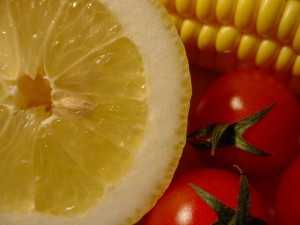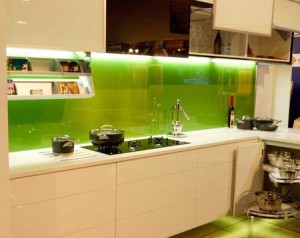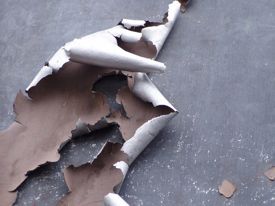Is Glass Paint Food Safe?
Glass paint is often used for decorative purposes. It can be used virtually anywhere around the house, but it plays particularly well in the bathroom and kitchen. One question people have is whether or not glass paint is food safe.
Most paints are not food safe
Food safety is especially important. Food can inadvertently absorb substances from paint that are not intended for human consumption. Some surfaces can also retain bacteria that can cause food-borne illnesses, so using surfaces that have been demonstrated as safe for contact with food is essential.
Most paints are not designated as food safe. Glass paint is no different; it’s not designated as being “food safe.” As a decorative medium, glass paint is used in the kitchen to create backpainted surfaces. The painted surface is mounted toward the wall, countertop or other substrate, and does not ever come in contact with food. This is true whether the backpainted surface is used as a backsplash, a stove surround, a countertop, or for cabinet facing.
Usually, food safe dishes that have been painted are glazed following the paint. The glaze, which is food safe, is cured and creates a permanent barrier between the paint and the food. Most ceramic glazes are dishwasher safe, and will not deteriorate over time.
The ability to clean and sanitize a surface also plays into the determination of whether or not a substance is food safe. Glass paint is certainly tough and can stand up to a variety of household cleaners, many of which are used in the kitchen, but we do not recommend complete immersion in water for surfaces that are painted with Glassprimer™ glass paint.
Glassprimer™ glass paint can stand up well to humidity. Immersion in water will not destroy the permanent bond between the paint and the glass, however dishes are commonly cleaned by water immersion. Because we do not recommend that surfaces painted with Glassprimer™ glass paint undergo water immersion, that makes cleaning dishes, glassware or other objects that regularly contact food difficult!
In addition, food is presented at a variety of temperatures. Glassprimer™ glass paint is heat-resistant only to a maximum temperature of 350 degrees F, which is below the cooking/serving temperature of certain foods. When used in the kitchen, care should be taken to avoid direct contact between the painted glass surface and food intended for consumption. Glass paint should be used for decorative purposes only.
If you’d like more information about glass paint, please visit the rest of our site. If you’d like to purchase Glassprimer™ glass paint, please visit our online store .
Photo Credit: , via FreeImages.com



